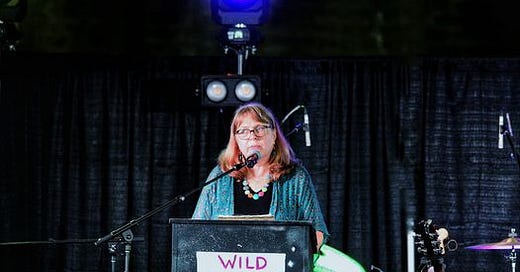

Discover more from The Cottage
Today’s lectionary texts include four interesting passages. Usually Sunday Musings explores only one text. But today I want to draw one theme — choice — from the four readings.
The full selections are: Jeremiah 18:1-11, Psalm 139:1-5, 12-17, Philemon 1-21, and Luke 14:25-33. Below are the excerpts relevant to this reflection, beginning with Psalm 139.
Psalm 139:1-5, 12-17
Lord, you have searched me out and known me;
you know my sitting down and my rising up;
you discern my thoughts from afar.
You trace my journeys and my resting-places
and are acquainted with all my ways.
Indeed, there is not a word on my lips,
but you, O Lord, know it altogether.
You press upon me behind and before
and lay your hand upon me.
Such knowledge is too wonderful for me;
it is so high that I cannot attain to it.
For you yourself created my inmost parts;
you knit me together in my mother's womb.
I will thank you because I am marvelously made;
your works are wonderful, and I know it well.
My body was not hidden from you,
while I was being made in secret
and woven in the depths of the earth.
Your eyes beheld my limbs, yet unfinished in the womb;
all of them were written in your book;
they were fashioned day by day,
when as yet there was none of them.
How deep I find your thoughts, O God!
how great is the sum of them!
If I were to count them, they would be more in number than the sand;
to count them all, my life span would need to be like yours.
Jeremiah 18:1-11
The word that came to Jeremiah from the Lord: "Come, go down to the potter's house, and there I will let you hear my words." So I went down to the potter's house, and there he was working at his wheel. The vessel he was making of clay was spoiled in the potter's hand, and he reworked it into another vessel, as seemed good to him.
Then the word of the Lord came to me: Can I not do with you, O house of Israel, just as this potter has done? says the Lord. Just like the clay in the potter's hand, so are you in my hand, O house of Israel. At one moment I may declare concerning a nation or a kingdom, that I will pluck up and break down and destroy it, but if that nation, concerning which I have spoken, turns from its evil, I will change my mind about the disaster that I intended to bring on it. And at another moment I may declare concerning a nation or a kingdom that I will build and plant it, but if it does evil in my sight, not listening to my voice, then I will change my mind about the good that I had intended to do to it. . .
Philemon 1-21
I am appealing to you for my child, Onesimus, whose father I have become during my imprisonment. Formerly he was useless to you, but now he is indeed useful both to you and to me. I am sending him, that is, my own heart, back to you. I wanted to keep him with me, so that he might be of service to me in your place during my imprisonment for the gospel; but I preferred to do nothing without your consent, in order that your good deed might be voluntary and not something forced. Perhaps this is the reason he was separated from you for a while, so that you might have him back forever, no longer as a slave but more than a slave, a beloved brother.
Luke 14:25-33
Now large crowds were traveling with Jesus; and he turned and said to them, "Whoever comes to me and does not hate father and mother, wife and children, brothers and sisters, yes, and even life itself, cannot be my disciple. Whoever does not carry the cross and follow me cannot be my disciple. For which of you, intending to build a tower, does not first sit down and estimate the cost, to see whether he has enough to complete it? Otherwise, when he has laid a foundation and is not able to finish, all who see it will begin to ridicule him, saying, `This fellow began to build and was not able to finish.' Or what king, going out to wage war against another king, will not sit down first and consider whether he is able with ten thousand to oppose the one who comes against him with twenty thousand? If he cannot, then, while the other is still far away, he sends a delegation and asks for the terms of peace. So therefore, none of you can become my disciple if you do not give up all your possessions."
I find it difficult to read Psalm 139.
Because this passage has been so politicized.
It is, of course, beautiful. However, in recent decades, this text, especially verse 13 — For you yourself created my inmost parts; you knit me together in my mother's womb — has become an antiabortion “clobber verse.” I can’t read it any more without remembering all the times someone has used it against me in an argument to prove that the Bible condemns abortion.
But this week, as I read the four lections together, it became clear that Psalm 139 is about something quite different — it is a mediation on choice.
The psalm opens by addressing a watchful God, the One who knows everything we do. At first, this prospect is a bit unnerving. But of this sacred gaze, Rabbi David Wolpe suggests:
Watching is not malevolent or dictatorial; it is a watching of gentleness, from the One who understands, and the One who is said in our prayers to have Ahavat Olam — eternal love. If we understand being watched as an act of love, as parents watch a child, the significance shifts.
To be watched by One who understands and knows you (Psalm 139: “Dear Lord, you have searched me and know me”) is a blessing. We are no longer alone. Most of our lives, we live inside ourselves, expressing but a small fraction of the drama, the dreams and the pain that make us human.
And what draws God’s attention? Our choices. Our actions. A surprising key to the psalm is found in verse 13, that same verse used by the pro-life movement to argue against choice: For you yourself created my inmost parts; you knit me together in my mother's womb.
This isn’t a proof text for “pre-born babies.” It is actually a poetic restatement of the creation of humankind, of Adam in Genesis, that the psalmist appropriates as he struggles to understand God’s inexhaustible knowledge of his being. God knows the psalmist, fully and completely, so that nothing is hidden. As a creator knows the creation; as an artist knows a painting. In the same way that God made Adam from dust, so God made the psalmist.
And what did God make?
Well, his “inmost parts.” The Hebrew word translated as “inmost parts” is actually the word “kidney.” The verse literally reads, “For you created my kidneys.”
Kidneys?
In the Hebrew Bible, the kidneys are considered to be the seat of the conscience. The verse could be translated, “For you created my conscience.”
And that’s the point. This is a text about conscience and ethical agency. The psalmist is meditating on how God gave human beings a conscience — the capacity for moral choice, the ability to discern, and make ethical decisions. Yet, God doesn’t abandon us to our choices. God accompanies us through them, the good choices, the bad ones; God knows both us and our actions.
Those choices and actions compose our lives, as, in effect, we are recreated and refashioned “day by day” on the basis of things we do. We begin as “unformed limbs” (like the dust and clay of Genesis) and become full moral agents, deserving of God’s attentive love and companionship.
Rabbi Wolpe continues,
To feel that you are before God is to be aware of the consequences of your actions, to be sure. A simple photocopy of eyes taped to a wall makes us act more honestly. But the watching of God is not only an encouragement to ethics; it is a comfort. We will act better for the recognition that we do not act in secret. But we also will live more happily for the recognition that we do not live in isolation.
Choice is everywhere in today’s texts. In Jeremiah, we read of a God who changes his mind. God is a God of choice, and that divine attribute is part of the image human beings bear. Choices need not be final, actions not predestined. We can be persuaded toward better outcomes, swayed by circumstances. We can adjudicate, discern, and evaluate. It is in our kidneys.
In the New Testament readings, Paul returns Onesimus, who is believed to have been a slave, back to Philemon. Paul hopes that sending him back will initiate a reconciliation between the two and change their relationship, based on Philemon’s choice: “your good deed might be voluntary and not something forced.” And, in Luke, Jesus tells his listeners that choosing to follow God comes with a cost. Anyone seeking to be a disciple needs to weigh the choice in advance.
God is all about choice. God created human beings with a conscience, never deserting us as we struggle to exercise it. Our capacity to change our minds and make different choices reflects divine moral discernment, part of the image of God in humankind. The freedom to choose opens the path toward forgiveness, reconciliation, and justice. And informed, well-considered choice is the beginning of wisdom, a way of transformative trust.
You might even say that God is pro-choice.
INSPIRATION
There are no beaten paths to Glory’s height,
There are no rules to compass greatness known;
Each for himself must cleave a path alone,
And press his own way forward in the fight.
Smooth is the way to ease and calm delight,
And soft the road Sloth chooseth for her own;
But he who craves the flower of life full-blown,
Must struggle up in all his armor dight!
What though the burden bear him sorely down
And crush to dust the mountain of his pride,
Oh, then, with strong heart let him still abide;
For rugged is the roadway to renown,
Nor may he hope to gain the envied crown,
Till he hath thrust the looming rocks aside.
— Paul Laurence Dunbar (*dight is an archaic word for “clothed”)
I go to the mountain side
of the house to cut saplings,
and clear a view to snow
on the mountain. But when I look up,
saw in hand, I see a nest clutched in
the uppermost branches.
I don’t cut that one.
I don’t cut the others either.
Suddenly, in every tree,
an unseen nest
where a mountain
would be.
— Tess Gallagher, “Choices”
God created things which had free will. That means creatures which can go wrong or right. Some people think they can imagine a creature which was free but had no possibility of going wrong, but I can't. If a thing is free to be good it's also free to be bad. And free will is what has made evil possible. Why, then, did God give them free will? Because free will, though it makes evil possible, is also the only thing that makes possible any love or goodness or joy worth having. A world of automata — of creatures that worked like machines — would hardly be worth creating. The happiness which God designs for His higher creatures is the happiness of being freely, voluntarily united to Him and to each other in an ecstasy of love and delight compared with which the most rapturous love between a man and a woman on this earth is mere milk and water. And for that they've got to be free.
— C.S. Lewis
BOOKING FOR SPRING 2023 and BEYOND
Church planners: Lent is coming! (At least Lent planning is at hand!) I’ll be talking about Freeing Jesus and the spiritual practice of memoir this spring on the road.
You can book me for your college event, book group gathering, conference, or church weekend by contacting JIM CHAFFEE of Chaffee Management. Spring dates are filling up fast — so reach out soon. I’d love to see you in person.

















This:
Watching is not malevolent or dictatorial; it is a watching of gentleness, from the One who understands, and the One who is said in our prayers to have Ahavat Olam — eternal love. If we understand being watched as an act of love, as parents watch a child, the significance shifts.
Has changed me in an instant. Even though I never thought that God was up there trying to get me, I never thought that it was this. Thank you for sharing!
I also have changed my mind. I am now pro-choice and have shared it with my sister and family. They don't agree, but we still love!!!
I must say the poem by Tess Gallagher touch me deeply.💗